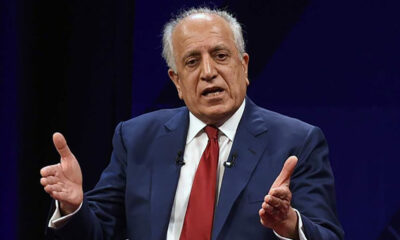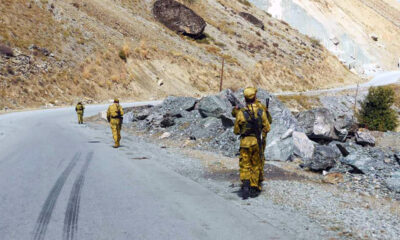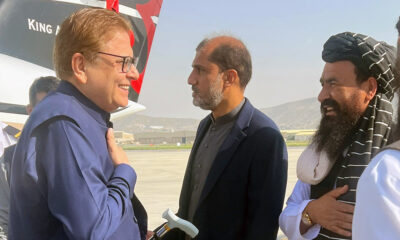Latest News
Pompeo pushes for ceasefire during Doha meeting
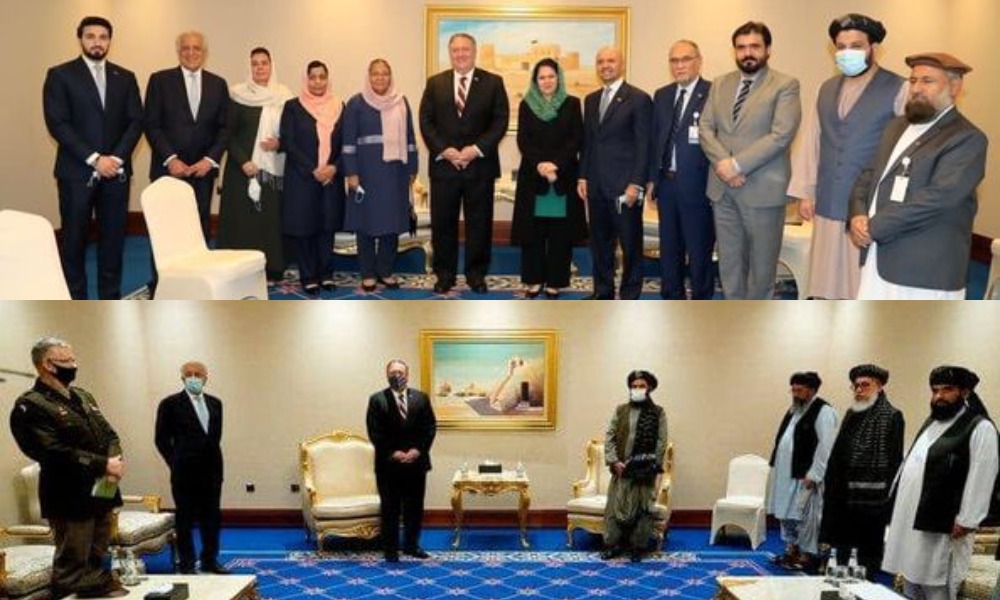
US Secretary of State Michael Pompeo met with both the Afghanistan Republic and the Taliban’s negotiating teams in Doha, Qatar on Saturday to discuss issues around the peace process and a ceasefire, his office confirmed overnight in a statement.
According to the US State Department’s Principal Deputy Spokesperson Cale Brown, Pompeo “commended both sides for continuing to negotiate and for the progress they have made.
“Secretary Pompeo and the negotiators discussed ways to reduce violence, and he encouraged expedited discussions on a political roadmap and a permanent and comprehensive ceasefire,” Brown said in a statement.
“Secretary Pompeo reiterated that the people of Afghanistan expect and deserve to live in peace and security after 40 years of war and bloodshed,” Brown added.
US Special Representative for Afghanistan Reconciliation Zalmay Khalilzad was also present at the meetings.
The Afghan negotiating team said tweeted late Saturday night that “during the meeting, Sayed Sadat Mansoor Naderi, Minister of State for Peace Affairs and a member of the negotiating team thanked the United States for its continued support to Afghanistan over the years.”
Naderi also called on the US to continue supporting Afghanistan even once a peace agreement has been signed.
“The members of the negotiating team said that the people of Afghanistan want to preserve the achievements of the last two decades in the country. They also said that the escalation of violence after the release of 5,000 Afghan prisoners was unacceptable and in conflict with the Doha Agreement,” the negotiating team tweeted.
The Afghan talks team told Pompeo that the Afghan people want a permanent ceasefire.
“During the meeting, the members of the negotiating team said that the ongoing war in Afghanistan is against Islam and its continuation is unacceptable to the international community,” the Afghan talks team tweeted.
“During the meeting, Mike Pompeo, referring to US support for the peace process, said that lasting peace is a common goal of both countries. The country’s support for lasting peace in Afghanistan will continue, as well as long-term commitments to the Afghan people,” the team stated.
The Taliban’s spokesman in Doha, Naeem Mohammed also issued a series of tweets late Saturday night, after the meetings.
He said: “The political deputy and head of the political office Mullah Abdul Ghani Baradar and the head of negotiating team Sheikh Mawlawi Abdulhakeem and the delegation accompanying them met with Secretary of State Mike Pompeo and his team.
“During the meeting, the importance of the agreement signed between the two sides and commitment to it were discussed.
“Likewise, the removal [of Taliban] from Blacklist, the liberation of remaining prisoners and the topics related to Intra-Afghan negotiations were talked about,” Naeem tweeted.
Pompeo met with talks team negotiators after recent indications point towards some headway having been made in talks, which started in September but soon hit a deadlock.
Latest News
Khalilzad says Pakistan might be using migrant expulsions to infiltrate ISIS into Afghanistan
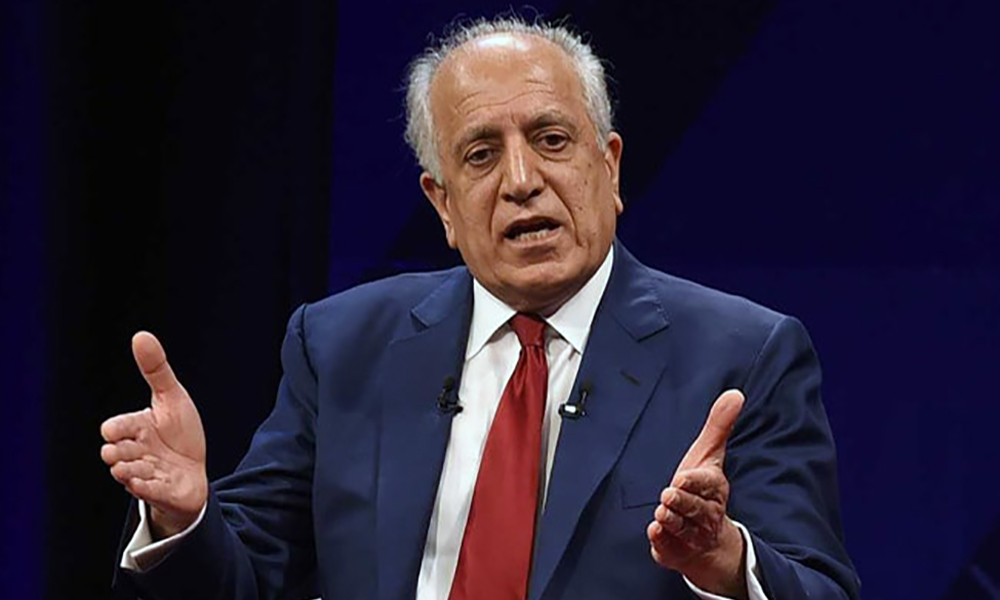
Washington’s former special envoy to Afghanistan, Zalmay Khalilzad, said in a social media post on Wednesday that he is concerned Pakistan might be using the expulsion of refugees as a cover to send in ISIS fighters into Afghanistan.
In a post on X on Wednesday, April 16, Khalilzad said: “Knowledgeable people tell me that they are concerned that the Pakistan establishment might well be using the expulsion of Afghan refugees as a cover to send ISIS terrorists to Afghanistan. I share this concern.”
Khalilzad did not elaborate further, nor did he clarify who the “knowledgeable people” were.
The Islamic Emirate has long been known to fight ISIS and has in the past accused Pakistan of supporting the militant group.
In January, Afghanistan’s deputy minister of foreign affairs said ISIS was operating training centers in Pakistan.
Khalilzad’s remarks come amid intensified efforts by Pakistan to deport hundreds of thousands of Afghan refugees in the country.
Pakistan began deporting undocumented Afghans in October 2023 but following a directive in December, authorities ramped up the deportations from April 1. In the first two weeks of this month over 45,000 Afghans returned.
Latest News
IEA warns UN in Afghanistan against undermining the ordinances of Islamic Sharia
The Islamic Emirate however said in Wednesday’s statement that Afghanistan implements court rulings in accordance with a thorough judicial process and meticulous legal scrutiny.

The Islamic Emirate of Afghanistan on Wednesday warned the UN in Afghanistan (UNAMA) against criticizing or undermining the ordinances of Islamic Shariah and said remarks by the organization last week on the execution of four men were “unacceptable”.
In a statement issued by the IEA’s Ministry of Foreign Affairs, the Islamic Emirate said the remarks were in “direct contravention of the organization’s mandate, and is categorically unacceptable.”
The ministry stated that as an Islamic government it was their duty to carry out such punishments under Sharia.
On Friday, UNAMA condemned the executions and called for the abolishment of the death penalty in Afghanistan.
In a post on X UNAMA stated: “The death penalty is inconsistent with the fundamental right to life. UNAMA calls for an immediate moratorium on the death penalty as a step towards its abolition.”
Four men were publicly executed in Afghanistan last week: two in Badghis, one in Nimroz, and one in Farah province.
Two of the men were shot around six or seven times by a male relative of the victims in front of spectators in Qala-e-Naw, the centre of Badghis province, witnesses told AFP. The families of the victims reportedly turned down the opportunity to offer the men amnesty.
The Islamic Emirate however said in Wednesday’s statement that Afghanistan implements court rulings in accordance with a thorough judicial process and meticulous legal scrutiny.
“During this process, the accused is granted full rights to defense from the beginning until a final verdict is issued,” the statement read.
The IEA said UNAMA’s remarks that Qisas punishments were “contrary to the right to life” and that the death penalty should be abolished “are considered irresponsible and based on ignorance of Islamic rulings.”
“The implementation of Shariah-prescribed punishments, including Qisas, is an undeniable component of Islamic law.
“In the sacred texts, Qisas is explicitly associated with the preservation of life, and human experience has also demonstrated its effectiveness in ensuring justice and social order.
“As an Islamic government, the Islamic Emirate of Afghanistan considers the implementation of Qisas its religious obligation,” the statement read.
As such, the IEA reminded UNAMA that “any attempt to critique or undermine the ordinances of Islamic Shariah constitutes an overreach, is in direct contravention of the organization’s mandate, and is categorically unacceptable.
“Moving forward, it is imperative that UNAMA refrain from engaging in such remarks,” the IEA warned.
Qisas, in Islamic legal terms, translates to “retaliation in kind,” “an eye for an eye,” or retributive justice.
It’s a principle of Islamic law that allows for punishment in kind or compensation.
Latest News
CSTO member countries concerned over terrorism threat to Central Asia from Afghanistan
Armenia, Belarus, Kazakhstan, Kyrgyzstan, Russia, and Tajikistan make up the CSTO, with Tajikistan playing a key role in ensuring security in the area.
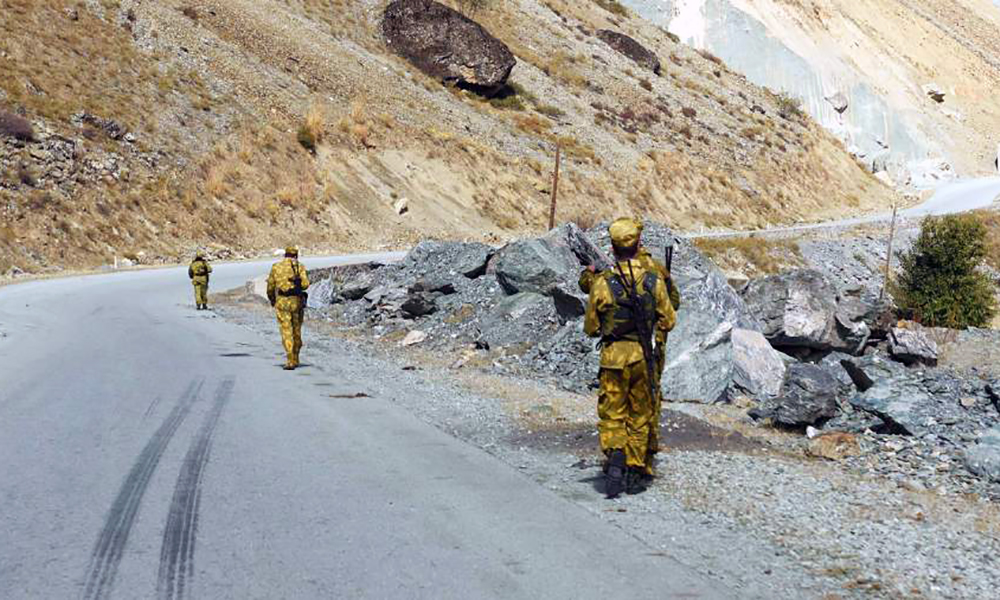
The Collective Security Treaty Organization (CSTO) has expressed concern about what they claim is growing threats in provinces in northern Afghanistan that border Central Asian countries.
Natalia Kharitonova, press secretary of the CSTO secretariat, told Russia’s Izvestia news outlet that the territory of Afghanistan remains a source of challenges related to terrorism, extremism, and drug crimes.
According to her, Tajikistan is ready to begin the first stage of the CSTO program to strengthen the Tajik-Afghan border.
However, she stated that the removal of the Islamic Emirate from Russia’s list of terrorist organizations may encourage Kabul to work more closely with neighboring countries to combat terrorism.
Armenia, Belarus, Kazakhstan, Kyrgyzstan, Russia, and Tajikistan make up the CSTO, with Tajikistan playing a key role in ensuring security in the area.
The CSTO program to strengthen the Tajik-Afghan border was first adopted by the CSTO in 2024. There are three phases.
The first phase involves Tajikistan, as the coordinator of the program, assessing the capabilities of the Member Countries in the production of weapons and technical means for border protection.
Once this is completed, CSTO members will select funding sources and finalize contracts. Deliveries are already planned for 2026-2027, the CSTO confirmed.
The third phase, which runs from 2027 to 2029, involves the practical provision of security along the entire section of the Tajik-Afghan border, which stretches for 1,300 km. Actual details on this phase have not yet been revealed.
However, Omar Nessar, a researcher at the Institute of Oriental Studies of the Russian Academy of Sciences, told Izvestia that the task of actually securing the border will probably be Russia’s responsibility as it has a large military base in Tajikistan.
On April 11, the Secretary General of the organization, Imangali Tasmagambetov, met in Dushanbe with the President of Tajikistan, Emomali Rahmon, and other officials, including the Minister of Defense of Tajikistan and the Secretary of the Security Council.
This, and other recent visits, demonstrate the Tajik side’s willingness to implement the first and all subsequent phases of the program, Kharitonova told Izvestia.
She went on to say that the organization has detected groups of militants operating from inside Afghanistan, along the Tajik border.
According to her, these are international militant groups such as Jundallah, the East Turkestan Islamic Movement and ISIS (Daesh).
Izvestia reported that the situation has become a lot more complicated since the change in power in Syria as several hundred militants from Central Asia were released from Syrian prisons. Hundreds made their way to the Afghan border area with Tajikistan, she said.
However, Omar Nessar believes that the situation on the border is stable at the moment, but that it could change.
Nessar suggested that a move towards recognizing the Islamic Emirate could be seen as an incentive for the ruling government to work more closely with neighboring countries to combat terrorism.
The Islamic Emirate has however repeatedly stated that no foreign militant groups, or Daesh, operate out of Afghanistan. The IEA has said it will not allow any individual or group to threaten another country from Afghanistan soil.
-
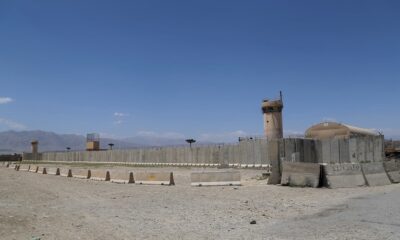
 Latest News4 days ago
Latest News4 days agoNo American military presence in Bagram: US defense official
-
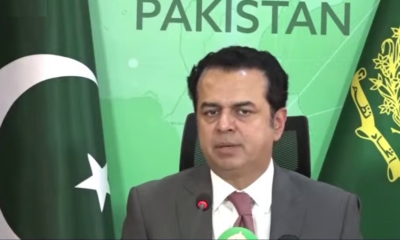
 Latest News5 days ago
Latest News5 days agoNo new deadline will be given for Afghan refugees: Pakistani official
-

 World4 days ago
World4 days agoWhite House says ‘all hell to pay’ should Iran develop nuclear weapon
-

 Latest News4 days ago
Latest News4 days agoTrump ends protected status for thousands of Afghans, Cameroonians
-

 Latest News4 days ago
Latest News4 days ago‘No one wants to see a nuclear-armed Iran,’ says former US ambassador to Afghanistan
-
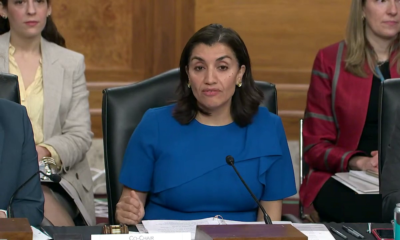
 Latest News4 days ago
Latest News4 days agoUS Senate convenes commission to review early years of Afghanistan war
-
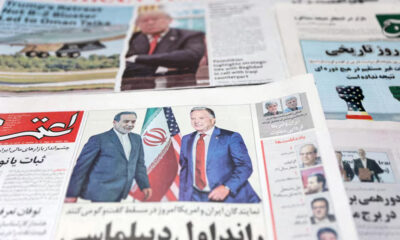
 Regional3 days ago
Regional3 days agoIran, US hold ‘positive’ talks in Oman, agree to resume next week
-

 World3 days ago
World3 days agoTrump says Ukraine talks may be going OK, but there is a time ‘to put up or shut up’


